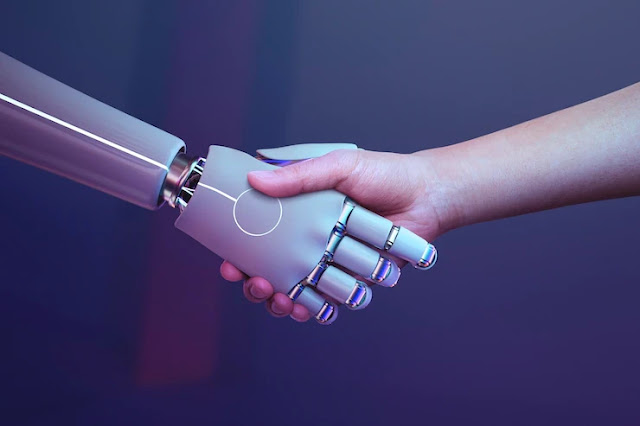How Will Artificial Intelligence Replace Humans?
The phrase "artificial intelligence" (AI) refers to the intelligence exhibited by robots. Artificial intelligence is also known as the capacity of a computer or machine to simulate the functions of the human mind.
Without the need for a question, it is clear that AI is capable of doing a number of tasks more quickly and effectively than humans. Artificial intelligence helps humans with laborious, repetitive tasks. Artificial intelligence, or AI, can automate practically all monotonous operations and execute a variety of routine chores with skill. However, can AI really replace people? The short answer is no.

Reasons why AI won’t replace humans
● Lacks empathy
● No emotional intellect
● Cannot work creatively
● Unable to think creatively or emotionally intelligent
Humans have emotional intelligence that allows them to immediately read people, convey their sentiments, and display emotion. For instance, firms cannot completely replace their customer service with AI. Customers prefer personal contact since machines cannot express empathy or feeling for them.
● Emotional intelligence absent
Without direct communication with customers, businesses are at risk of losing clients. Artificial intelligence (AI) systems are logical, precise, and quick. AI systems lack intuition, cultural sensitivity, and empathy. Humans are effective because of these skills, which are what they possess. Humans are able to read a person's expression and know just what to say.

● Lack of creativity
Humans can do increasingly innovative professions as artificial intelligence is implemented rapidly. Humans require more creativity to work and complete amazing tasks, not just in the creative industry but also in business or computing.
Many companies realize that the true promise of artificial intelligence is to improve the abilities of their staff by replacing tedious, error-prone manual jobs with sophisticated automated ones. Businesses are increasingly aware that with the adoption of AI, staff will have more time to focus on higher priority and innovative jobs.
● Lacks compassion
People can express various emotions, including pleasure, sorrow, joy, hope, gratitude, optimism, generosity, and others. Furthermore, it is difficult to comprehend how AI is better than a human in displaying all facial expressions and interpreting the emotions of others.
Businesses need a personal touch to earn customers' trust and loyalty because consumers still prefer talking to people over machines. Computers or robots powered by artificial intelligence can mimic human speech; however, they lack empathy and personal touch.
Because its coding does not support it, artificial intelligence that cannot think beyond the box is unable to come up with novel solutions to a variety of emerging challenges. Robots are known to be programmed to operate within their physical limitations.
Artificial intelligence, or AI, is not adept at evaluating context, coming up with complex plans, or thinking critically through complex problems.
In contrast to artificial intelligence, which can only interpret data that has been programmed into its system, companies and their teams are continually interacting with the outside world.
Most artificial intelligence (AI) devices created today are intended to be highly useful in solving a particular problem within the confines of a particular data system.
Human understanding, application of knowledge, and creativity are essential for making AI effective. The simple fact that humans will always provide value that robots, computers, or other technologies cannot is why AI will never be able to replace people.

No comments